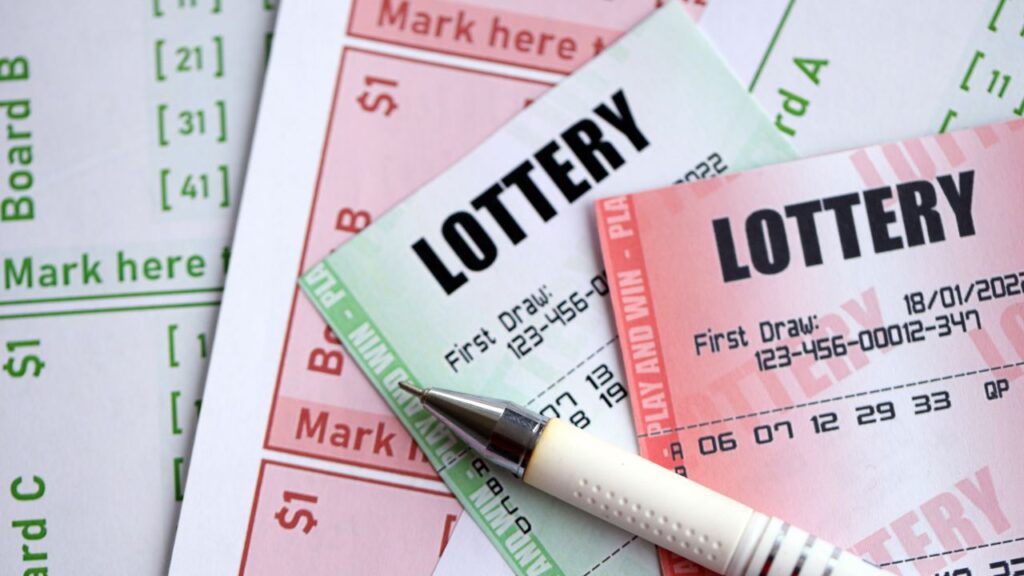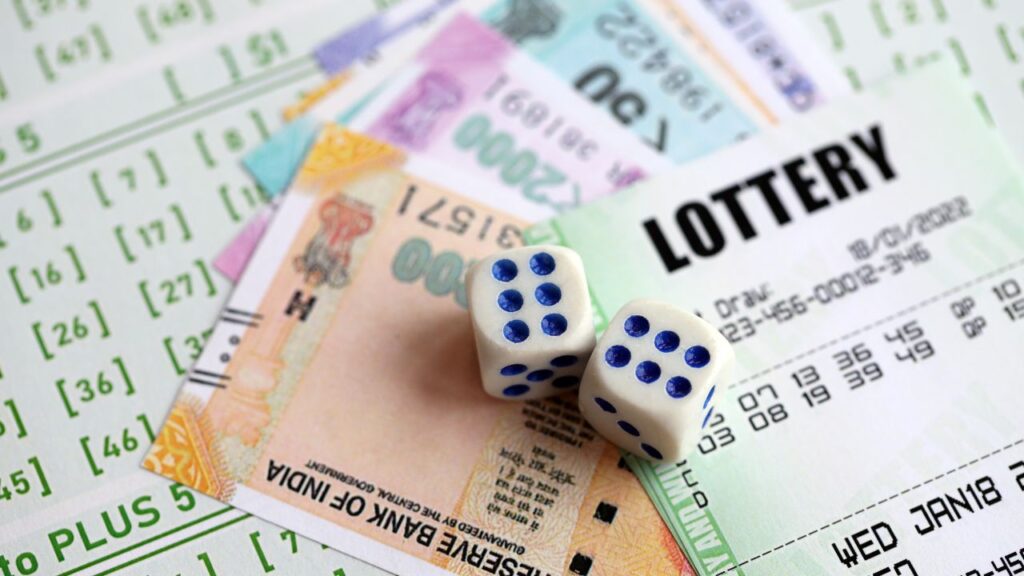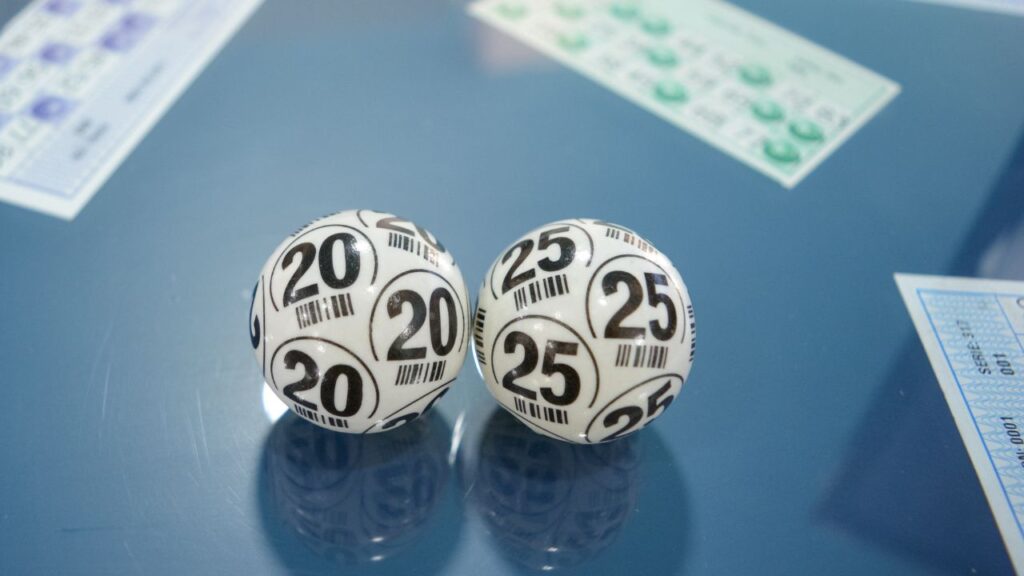“Is your local lottery a fun game—or a financial trap for the poor?”
Every year, Americans spend over $80 billion on lottery tickets, but beneath the excitement of scratch-offs and Powerball dreams lies a growing ethical debate: Are lotteries unfairly targeting low-income communities?
From high-stakes jackpots to neighborhood convenience store terminals, lotteries are deeply embedded in our culture. But growing research shows that these games of chance may extract the most from those who can afford it least. In this article, we’ll dig into the ethics of lotteries—how they’re funded, who really pays, and whether they’re widening the wealth gap under the guise of public benefit.
Let’s unpack what lottery ethics really mean—and why it matters for the future of fair public funding.
🎯 Want Better Lottery Picks Without the Guesswork?
Discover the top-rated tools designed to help you choose smarter numbers—based on data, not luck.
👉 Find the Best Lottery Prediction Software Here and play with more confidence today!
🧩 Who Plays the Lottery—and Who Pays the Most?
Lotteries are often marketed as harmless fun or a chance to change your life with a single lucky ticket. But behind the cheerful slogans and massive jackpots lies a harsh truth: the people spending the most on lottery tickets are often those who can least afford to lose. Understanding who plays—and how much they spend—reveals the deeper ethical issues surrounding state-run lotteries.
Who’s Playing: Income, Education & Race
Studies from both the U.S. and UK show that lottery participation skews heavily toward lower-income demographics. Individuals earning less, with less formal education, and from historically marginalized racial groups are more likely to play—and to spend more.
- In the U.S., households earning under $30,000 are significantly more likely to play regularly compared to those earning over $100,000.
- High school dropouts and individuals without college degrees are consistently among the most active lottery participants.
- Black and Hispanic communities often spend disproportionately on lotteries compared to white, higher-income groups.
These patterns aren’t random—they reflect deeper systemic trends in access, economic opportunity, and targeted marketing.
What the Studies Say
Multiple studies confirm that lotteries extract the most revenue from low-income neighborhoods:
- A Duke University study revealed that the bottom third of U.S. households by income purchase half of all lottery tickets.
- In the UK, research by the Theos think tank found that lower-income groups spend similar amounts on lottery tickets as wealthier groups, but those dollars represent a much larger share of their monthly income.
- Scratchcard and instant-win games are especially popular—and heavily promoted—in economically disadvantaged areas.
This data suggests that lotteries aren’t just passively played by low-income individuals—they’re disproportionately financed by them.
Hard Numbers: $500+ Spent by the Poorest Households
The statistics are striking. In the U.S., households earning less than $10,000 per year spend an average of $597 annually on lottery tickets. That’s over 6% of their total income—money that could otherwise go toward food, rent, or savings.
By contrast, higher-income households may spend the same or less in absolute terms, but it represents a tiny fraction of their disposable income. That means the economic impact of a $5 scratch-off is wildly different depending on who’s buying it.
The Psychology: Why People Still Play
It’s not about irresponsibility—it’s about hope.
For many, the lottery represents the only perceived shot at financial transformation.
- Some view it as their “retirement plan.”
- Others see it as the only accessible way to escape poverty, especially in areas where economic mobility feels out of reach.
- The daily barrage of jackpot ads in under-resourced neighborhoods fuels the dream that “somebody’s got to win—why not me?”
This emotional pull is intensified by the fact that many low-income individuals are excluded from traditional financial tools—homeownership, investing, savings programs. When legitimate wealth-building feels inaccessible, the lottery becomes a seductive shortcut.
Tired of guessing your lottery numbers?
🎰 Use Lotto Champ to take the guesswork out of your picks with data-backed predictions.
🧩 The Regressive Nature of Lottery Revenue

Lotteries may be marketed as “fun and voluntary,” but when you break down the financial impact, a troubling reality emerges: lottery revenue functions like a regressive tax. The people who can least afford to lose money are the ones funding state programs—while wealthier residents contribute little and often benefit more. That’s not just bad policy—it’s a direct challenge to the ethics of how public funding is raised and spent.
What Is Regressive Revenue?
In tax policy, a regressive system is one where low-income individuals pay a higher percentage of their income than high-income individuals.
- Think of it like this: a flat $100 lottery spend is far more painful to someone making $15,000 a year than someone making $150,000.
- By contrast, progressive taxes, such as income taxes or capital gains taxes, scale based on wealth—those who earn more, pay more.
While lotteries are technically “voluntary,” the effect is the same: a heavier financial burden falls on the poor.
Why Lotteries Are Called a “Tax on the Poor”
It’s a phrase repeated in headlines and by economists alike: state lotteries are a hidden tax on the poor. Why?
- Because lower-income players are more likely to play, and they play more often.
- They also tend to spend a larger percentage of their income on tickets compared to middle- or upper-income households.
- The system isn’t based on ability to pay—it’s based on who’s most likely to chase the dream.
And the more someone plays, the more they lose: lotteries return, on average, only 60 to 65 cents per dollar spent. That means the state keeps the rest—money that often comes out of tight grocery budgets or rent envelopes.
Data Shows the Poor Fund the Majority of Revenue
Real-world data proves this isn’t a theory—it’s a fact:
- In states like North Carolina and Massachusetts, studies show the poorest counties generate the highest per capita lottery sales.
- In the U.S. as a whole, the bottom 10% of earners regularly spend $500–$600 annually on tickets.
- A landmark federal report revealed that the top 10% of lottery players are responsible for up to 70% of total sales, and they’re often low-income, less educated, and disproportionately from minority groups.
Meanwhile, wealthy communities play far less, and their contributions to lottery revenue are minimal. Yet they still benefit from the public programs funded by those dollars.
The Wealth Transfer Few People Talk About
One of the most controversial effects of state lotteries is the reverse wealth transfer they create:
- Poor neighborhoods generate the revenue…
- …while affluent schools, districts, or cultural programs often receive the funding.
In the UK, studies found that lottery-funded grants were disproportionately awarded to higher-income areas, despite the fact that ticket sales were strongest in lower-income communities.
In the U.S., similar patterns emerge in states where lottery dollars fund merit-based scholarships or infrastructure in wealthier suburban districts.
So not only do poor communities spend the most on the lottery, they often get the least back in return—a dynamic that raises serious concerns about equity, justice, and the morality of public finance.
Want to increase your chances without spending more?
👉 Discover how Lotto Champ helps you play smarter and track winning trends.
🧩 Where Does the Money Go?

One of the main justifications for state-run lotteries is their contribution to “good causes”—think schools, parks, public health programs, and local charities. The idea is simple and appealing: by buying a ticket, you’re not just dreaming of millions, you’re helping your community. But when we follow the money, the reality becomes far more complex—and ethically murky.
State Justifications: Schools, Services & Social Good
Most states promote the lottery as a beneficial funding mechanism that supports essential services without raising taxes.
- In the U.S., education is the most commonly cited beneficiary. Many states even mandate that a percentage of lottery revenue goes directly to public school systems or college scholarships.
- In the UK, the National Lottery distributes funds to a wide range of causes, including arts, sports, heritage, and health charities. Since its inception, over £45 billion has been allocated to “good causes.”
On the surface, this makes lotteries sound like a win-win: voluntary spending funds the public good.
Case Studies: How Funds Are Really Used
But how effective—and fair—is this system in practice?
United States:
- In Georgia, the lottery funds the HOPE Scholarship, but recipients disproportionately come from higher-income families who attend better-performing schools.
- In South Carolina, analysis revealed that Black and low-income students—who contribute heavily to lottery sales—receive a smaller share of state-funded merit scholarships.
- Some states, like California, have used lottery money for school budgets—but critics argue it has often just replaced other funding, not added to it.
United Kingdom:
- Studies have shown that grants from the National Lottery disproportionately benefit middle- and upper-class communities, especially in the arts and culture sectors.
- Lower-income areas, despite spending more on tickets, often receive fewer or smaller grants, effectively turning lottery revenue into an upward redistribution mechanism.
Who Really Benefits?
While public campaigns highlight broad societal gains, the benefits often don’t return to the communities generating the revenue.
- Higher-income neighborhoods tend to have more grant-writing capacity, better access to application processes, and stronger infrastructure to receive lottery-funded resources.
- Lottery-funded programs—such as university scholarships or heritage site restorations—may serve the public, but often fail to target or prioritize the needs of low-income players who fund them.
This creates an ethical gap: the system appears charitable but delivers disproportionate returns to those already better off.
Are Lottery Funds Supplementing—or Just Replacing?
A major issue often hidden from public view is the displacement effect:
- Many states initially promised that lottery revenue would supplement existing funding.
- In practice, it often replaces general revenue—allowing lawmakers to shift funds elsewhere, without increasing total budgets.
For example:
- In Texas, when lottery funds were added to education, an equivalent amount was pulled from the general education budget, resulting in no net increase.
- A similar pattern has emerged in New York, where education funding levels remained flat despite record lottery profits.
This bait-and-switch undermines the lottery’s public value proposition. It also means that the poorest residents are effectively paying into a system that doesn’t truly expand services—they’re just covering what taxpayers used to.
Join thousands of players using next-gen lottery tech.
✅ Try Lotto Champ’s winning algorithm today and change how you play forever.
🧩 The Ethics of Targeting Vulnerable Communities

While lotteries are framed as voluntary entertainment, a closer look at how and where they’re marketed tells a more troubling story. Lottery retailers and ads are not distributed randomly—they’re strategically placed. And the pattern is clear: they’re concentrated in communities already struggling economically. This raises the core ethical question—is the state capitalizing on desperation?
Lottery Retailers and Poverty: A Clear Correlation
Data-driven investigations have revealed a stark reality: lottery retailers are disproportionately located in low-income areas.
- A nationwide study by the University of Maryland’s Howard Center found that in all 44 U.S. states analyzed, lottery outlets were more prevalent in ZIP codes with higher poverty rates.
- In states like Michigan and Texas, neighborhoods with the highest concentrations of lottery stores had double the poverty rates of those without them.
- This clustering isn’t just incidental—it creates daily exposure for people who are most financially vulnerable.
These aren’t just places people pass through—they’re where they live. So while state officials often claim players “buy tickets where they work or travel,” mobile phone location data shows the opposite: most lottery purchases are local.
Exploitation or Entertainment?
The debate over intent versus impact is at the core of lottery ethics.
- Proponents say it’s harmless fun, a dollar here or there for a shot at a dream.
- Critics call it a form of state-sponsored exploitation, especially when you consider who’s targeted—and how frequently.
Ethicists argue that it’s fundamentally wrong for governments to profit from the financial desperation of their citizens. When the same system that should protect the public actively profits from their poor decision-making or hopefulness, the moral line becomes dangerously blurred.
As one philosophy professor put it:
“The state should not be in the business of manipulating people’s cognitive biases for profit.“
The Power of Advertising—and Where It Shows Up
Another key factor is how aggressively lotteries are advertised—and where.
- Low-income and minority neighborhoods often see more billboard ads, store banners, and transit posters promoting jackpots and scratch-offs.
- These ads are designed to emphasize winning, not probability.
- Phrases like “Play Today!” or “Your Chance to Win Big!” are emotionally persuasive, despite the actual odds being 1 in 292 million for Powerball.
Unlike other forms of gambling, state lotteries are exempt from federal truth-in-advertising regulations, allowing them to omit hard statistics or disclaimers in their marketing.
For communities already experiencing high unemployment, underfunded schools, and limited financial mobility, this messaging isn’t neutral—it’s predatory.
Voluntary Play or Systemic Pressure?
Lottery officials often defend their programs by saying play is “voluntary.” No one is forcing anyone to buy a ticket, right?
But here’s the counterpoint: if a system is disproportionately advertised, promoted, and normalized in vulnerable communities—can the choice truly be called free?
- When hope is scarce and escape routes are limited, a $2 scratch-off might feel more like a lifeline than a luxury.
- And when players are repeatedly told that “somebody has to win,” the lottery becomes more than entertainment—it becomes a statistically empty promise sold as salvation.
This isn’t just about individual responsibility. It’s about systemic design—and whether it’s ethical for a state to create and market a product that thrives when the poorest lose.
Don’t rely on luck—play with a plan.
📊 Explore Lotto Champ’s predictive software now and start choosing like a pro.
🧩 Expert Opinions on Lottery Fairness and Harm

As the public conversation around lottery ethics grows louder, experts from economics, philosophy, public policy, and the lottery industry itself have weighed in. While opinions vary, one theme rings clear: state-run lotteries are far from ethically neutral, especially when examined through the lens of fairness, exploitation, and social responsibility.
Economists: A Regressive Revenue Stream with Hidden Costs
Many economists agree that lotteries function as a regressive revenue model—extracting more, proportionally, from low-income earners.
- The Tax Foundation calls lottery revenue “a hidden tax”, noting that states treat it like general fund income while avoiding voter resistance to actual taxation.
- Nobel Prize–winning economist Joseph Stiglitz has noted that regressive revenue sources like the lottery “undermine public confidence in the fairness of the tax system.”
- Others argue that while lotteries generate short-term revenue, they create long-term economic stress in vulnerable communities—especially when spending crowds out essentials like food, rent, or savings.
In short, the economic critique isn’t just about who pays—it’s about the impact of those payments over time.
Philosophers: Is the State Exploiting Human Weakness?
Ethical philosophers are particularly critical of state-sponsored gambling because of how it targets cognitive biases and emotional vulnerabilities.
- Many argue that the illusion of control, the availability heuristic, and the hope bias all contribute to irrational lottery participation.
- Philosopher Jeremy Evans writes: “Lotteries are state-sponsored manipulation—leveraging people’s inability to understand probability for institutional profit.“
- Others compare it to paternalism failure: if the state is expected to protect its citizens from predatory practices, how can it justify promoting a game where the expected outcome is loss for nearly everyone?
From this lens, the ethics of lotteries are not just questionable—they’re antithetical to responsible governance.
Lottery Industry: It’s About Choice and Community
In contrast, lottery commissions and industry spokespeople often defend their operations as voluntary entertainment with a public benefit.
- A common argument is that lotteries offer people a harmless escape, and most players spend within their means.
- The North American Association of State and Provincial Lotteries (NASPL) has said: “Lotteries raise billions for education, conservation, and community programs without raising taxes. That’s a win for everyone.“
Many agencies emphasize transparency, regulation, and responsible gaming programs, asserting that they actively discourage problem gambling while offering fun and funding good causes.
Still, critics point out that most state lotteries depend heavily on repeat players—a dynamic more consistent with addiction than casual play.
Voices That Shape the Debate
Quotes from key thought leaders across disciplines show just how divided—and passionate—the lottery ethics debate can be:
- Garrick Blalock, economist: “Lottery sales rise in poor neighborhoods, but movie ticket sales don’t. That tells us this isn’t entertainment—it’s hope.”
- Natasha Dow Schüll, author of Addiction by Design: “The lottery is a system engineered for loss—and for repeat behavior.”
- Howard Center for Investigative Journalism: “State lotteries are built on billions in losses—mostly from the poorest neighborhoods in America.”
- State lottery official (anonymous): “We promote dreams. It’s not our job to police how much people play.”
These perspectives reflect a fundamental tension between freedom of choice and ethical responsibility. At its core, the lottery isn’t just a game—it’s a public policy decision with real-world consequences, especially for those already on the financial edge.
Serious about winning?
🔥 Check out Lotto Champ’s proven system for smarter number selection.
🧩 Common Defenses of State Lotteries—and Their Flaws
State lotteries have no shortage of supporters—from public officials to casual players. Proponents often lean on a set of familiar arguments to justify their existence and expansion. But when we put these claims under the microscope, the ethical cracks begin to show. Let’s break down the most common defenses—and explore why they don’t hold up under scrutiny.
“It’s Voluntary” — But Is It Really Free Choice?
Perhaps the most widely cited defense of the lottery is that no one is forced to play. Unlike taxes, lottery participation is entirely optional.
But here’s the problem: choice doesn’t exist in a vacuum.
- When retailers and ads are concentrated in low-income communities, exposure isn’t equal.
- When a person feels economically trapped, spending $2 on a dream can feel like the only way out.
- Add to that the psychological manipulation of near-miss ticket design, jackpot hype, and reward anticipation, and what you get isn’t rational choice—it’s engineered compulsion.
In other words, just because something is voluntary doesn’t make it ethical, especially when the system is built to capitalize on vulnerability.
“It Funds Good Causes” — But Who Pays That Bill?
Many states proudly claim their lotteries support education, public parks, scholarships, or veterans’ programs. It’s a feel-good talking point that plays well in public campaigns.
However:
- Studies have shown that lottery funds often replace general revenue, rather than increase total support.
- The communities funding these programs (via ticket purchases) are often not the ones benefiting—with wealthier districts and students getting a disproportionate share.
- This creates a reverse Robin Hood effect, where the poor fund programs for the rich.
The core question is ethical, not just fiscal: Even if the outcome is good, is it right to fund public goods through a system that relies on losses from the least advantaged?
“People Enjoy It” — But Enjoyment Has Limits
It’s true—many people do enjoy playing the lottery. It’s simple, it’s hopeful, and for a few dollars, it provides excitement.
But let’s be clear: casual enjoyment is not the whole picture.
- Most lottery revenue comes from a small group of heavy players, not occasional buyers.
- These individuals often live in financially unstable households, with limited access to credit or savings.
- For them, the line between entertainment and addiction is thin, blurred, and actively encouraged by relentless marketing.
As with other potentially addictive industries (alcohol, tobacco, gambling), ethical lines are drawn not just by what’s legal—but by how harm is mitigated. And lotteries, many argue, do far too little to prevent harm.
Ethical Alternatives: Better Ways to Fund Public Goods
If lotteries are ethically flawed, what are the options?
States and countries have many alternatives to raise revenue without disproportionately burdening the poor:
- Progressive tax reform: Ensure the wealthy contribute fairly to education and infrastructure.
- Public bond initiatives: Spread funding across broader populations without exploiting desperation.
- Corporate taxation: Close loopholes and redirect funding responsibilities from individuals to profitable institutions.
- Transparent general revenue allocations: Instead of earmarking lottery funds, ensure stable long-term budgets through inclusive fiscal policy.
These alternatives don’t carry the emotional manipulation or economic inequality baked into the lottery model—and they don’t require a population to collectively lose money for the state to win.
Why play blind when data can guide you?
🎯 Unlock lottery insights with Lotto Champ and play with real strategy.
🧩 Potential Reforms and Ethical Alternatives
If lotteries are ethically flawed yet politically popular, the question becomes: Can they be fixed—or should they be replaced? While eliminating state-run lotteries altogether may not be realistic in the short term, several reform proposals could reduce harm, restore fairness, and make revenue models more responsible. From regulatory tweaks to systemic overhauls, here are some of the most discussed—and most needed—ethical alternatives.
🧾 Capping Ticket Purchases or Implementing Spending Limits
One of the most immediate ways to reduce harm is by limiting how much individuals can spend:
- Daily, weekly, or monthly limits could be implemented via lottery apps or ID-based systems.
- This would protect problem gamblers and low-income repeat players, who often account for the majority of lottery revenue.
- Similar systems already exist in online gambling platforms—there’s no reason state lotteries shouldn’t follow suit.
It’s a harm-reduction strategy that preserves the game, while curbing the damage.
📍 Redirecting Funds to Communities That Pay the Most
If low-income communities are supplying the bulk of lottery revenue, then equity demands that more of the benefits flow back into those same communities.
- Education funding formulas could be adjusted to prioritize underfunded districts where lottery play is highest.
- Grant-making from lottery-funded charities could include income-based allocation criteria.
- Transparent reporting tools could show where ticket revenue is coming from—and where it’s going.
This shift would make the system more ethically balanced, offering a fairer return on community investment.
⚠️ Better Disclosure of Odds and Advertising Regulation
State lotteries are often exempt from the strict truth-in-advertising laws applied to other industries. That needs to change.
- Require clear and visible odds disclosures on all marketing materials (e.g., “Odds of winning: 1 in 292 million”).
- Ban misleading language like “Play Now!” or “Your Turn to Win!” that creates false hope.
- Restrict advertising saturation in low-income and minority neighborhoods, where harm is most concentrated.
The goal isn’t to kill the lottery—but to market it honestly, not manipulatively.
🏛️ Broader Policy Alternatives: Do We Even Need Lotteries?
Some critics argue that the best reform is a complete rethink of how we fund public goods. Instead of relying on voluntary losses from the poor, states could pursue:
- Progressive taxation: Make those with higher income or wealth pay a fairer share into the system.
- Corporate tax reform: Reduce dependency on consumer dollars by holding profitable companies accountable for community contributions.
- Public bond financing: Use government-backed bonds to fund education or infrastructure without creating behavioral harm.
- Lottery-free budget models: Countries like Germany and Norway fund robust public programs without relying on gambling revenue.
These alternatives aren’t just about raising money—they’re about how that money is raised, and who bears the burden.
Looking for a real edge in the next draw?
💡 Lotto Champ could be your secret weapon for better picks and more confidence.
✅ Conclusion & Call to Action
Lotteries promise hope—but often deliver hardship. For millions living paycheck to paycheck, that “golden ticket” is less a game and more a grasp at survival. While state officials praise lotteries for funding schools and social programs, the uncomfortable truth remains: it’s low-income communities that foot the bill, while more affluent areas often receive the biggest benefits.
The numbers don’t lie. Retailers cluster in poor neighborhoods. Ads target vulnerable groups. And most of the revenue comes from those who can least afford to lose.
So we must ask: Is this really the fairest way to fund public services? Or have we normalized a system that profits from desperation?
It’s time to reimagine how we fund education, infrastructure, and the social safety net—without placing the burden on those with the fewest resources.
👉 Join the movement for ethical reform. Share this article, start conversations, and demand accountability in how your state funds public programs.
🎯 Want to learn how to protect your finances and make smarter money decisions?
Explore the best tools for budgeting, saving, and financial literacy here — because real wealth starts with informed choices.

